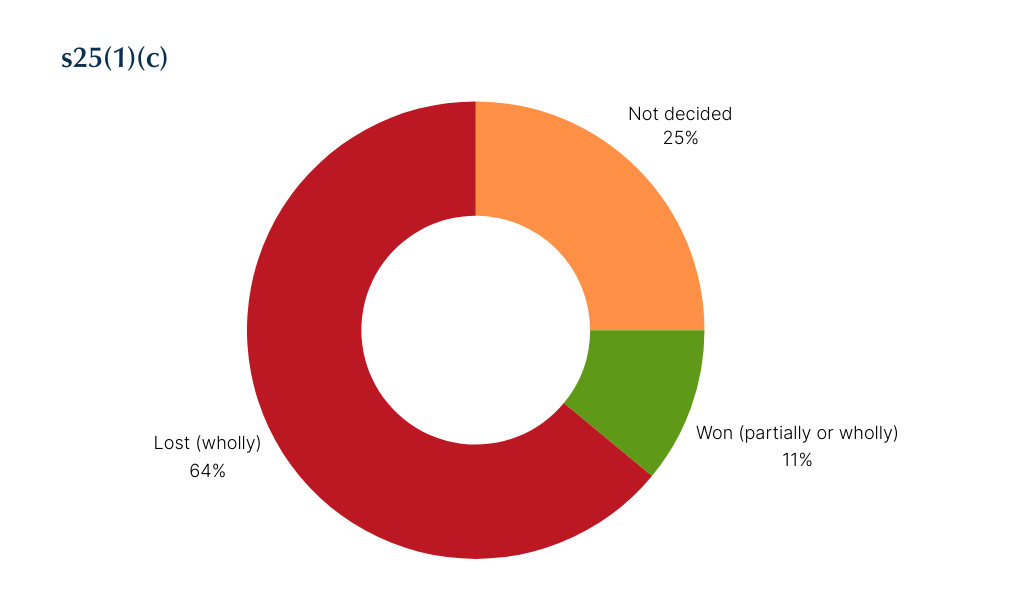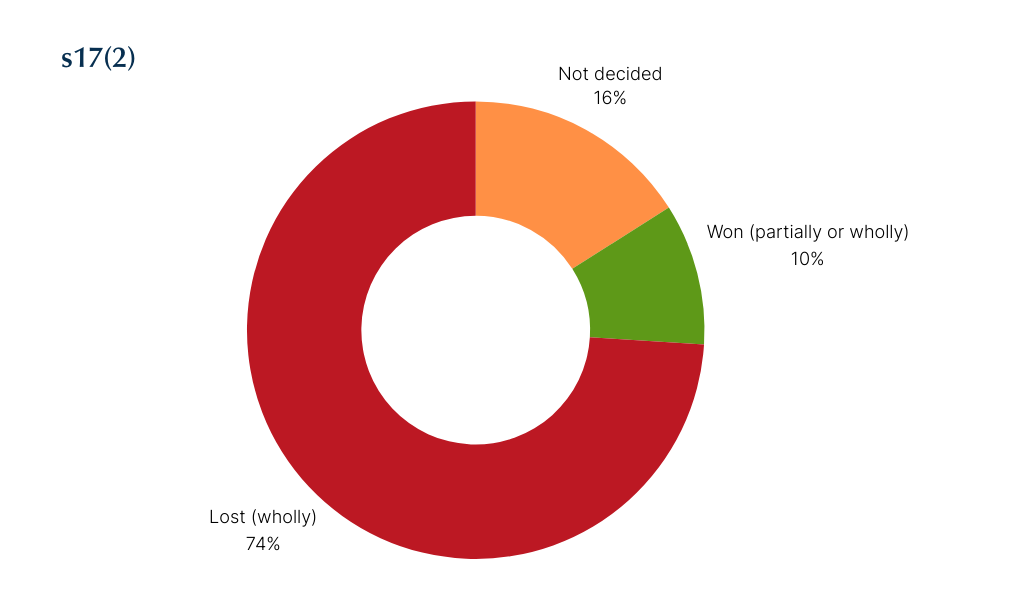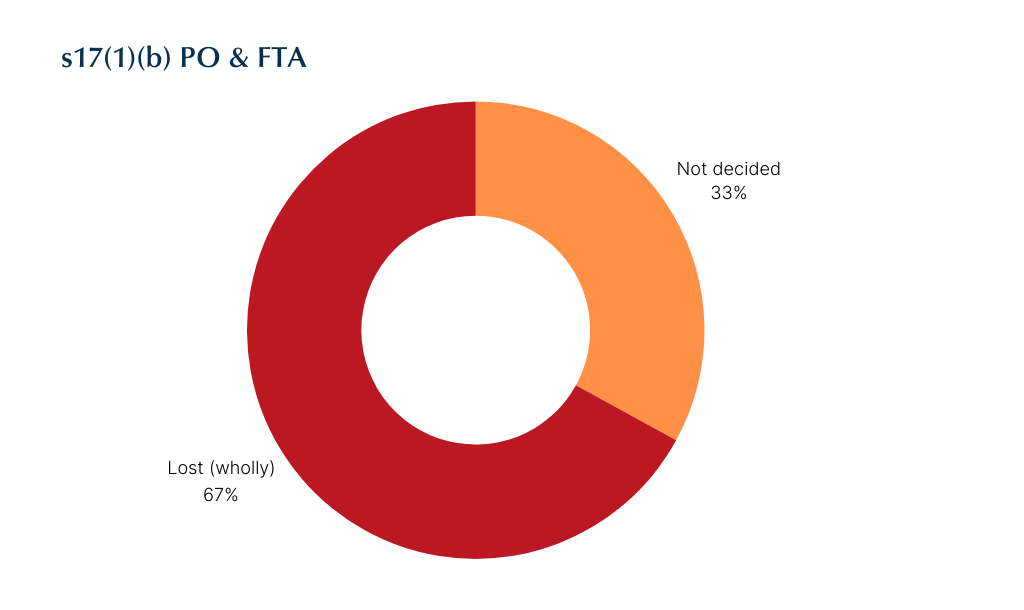
James & Wells' Ben Cain shares which ground is "an exercise in futility" to plead

In my last article, I explored the first three of the top five most popular grounds pleaded in trade mark opposition and invalidity proceedings in New Zealand and the apparent reasons for their success or failure. In this article, I explore the last three most popular grounds pleaded – including one that appears to meet the definition of an exercise in futility – and draw conclusions from the analysis.


Oppositions and invalidities pleading s25(1)(c) and s17(2) enjoyed the very low success rates of 11% and 10% respectively.
Success or failure under s25(1)(c) and s17(2) universally comes down to a question of evidence given the acknowledged high thresholds to succeed under these grounds. Personally, I was surprised at how often s17(2) – bad faith – is pleaded given the seriousness of the allegations being made under this ground. It seems to be approached as a ‘throw-away’ ground without much care and attention as to why it is being pleaded or the evidential threshold to meet. Again, I believe parties would be well served by not pleading s25(1)(c) or s17(2) unless there is sufficiently clear indication at the time of pleading that the background facts clearly support the ground(s); or, if they must, then not pursuing these grounds at a hearing if the evidence does not objectively support the ground(s).

Finally, we get to s17(1)(b), where the focus of this analysis are the allegations of passing off and breach of the Fair Trading Act (FTA), not copyright infringement and any other allegations brought under s17(1)(b) (such as contrary to equity).
Passing off and/or breach of the Fair Trading Act was pleaded no less than 46 times across the 61 decisions reviewed (so in 75% of cases); however, not once – as Jenny Mackie remarked of s41(b) – did the ground lead its host to victory. More specifically, passing off was unsuccessful on 15 occasions and not decided on in a further 5; while breach of the FTA was unsuccessful on 16 occasions and not decided on in a further 10.
Why isn’t s17(1(b) a winner? Well, on the occasions that passing off and/or breach of the FTA were pleaded alongside s17(1)(a) and were unsuccessful, the s17(1)(a) ground of opposition or invalidity was also unsuccessful. It was not necessary then to decide the passing off and/or breach of FTA allegations under s17(1)(b) as the outcome of the s17(1)(a) ground had pre-determined the outcome of the s17(1)(b) ground. On the occasions that passing off and/or breach of the FTA were pleaded alongside s17(1)(a) and were not decided, this was because the s17(1)(a) ground had either succeeded, failed or not been decided due to success under another ground – all of which rendered deciding allegations of passing off and/or breach of the FTA under s17(1)(b) unnecessary.
Assistant Commissioner Casey KC’s words in Shenzen Motoma Power Co Ltd v Motorola Trademark Holdings LLC thus ring one hundred percent true: pleading passing off and/or breach of the FTA under s17(1)(b) alongside s17(1)(a) are of limited utility. In fact, zero utility.
The top five most popular and successful grounds pleaded in decided oppositions and invalidity applications published on NZLII in New Zealand in 2022 and 2023 were: s25(1)(b), s17(1)(a), s32(1), s25(1)(c), and s17(2). The first three were successful by some margin over the fourth and fifth grounds, establishing their value and place in oppositions and invalidity applications.
Other grounds also enjoyed fair success rates – such as infringement of copyright under s17(1)(b) (40%) and section 18 (lack of distinctiveness/descriptive mark) (75%). However, these grounds are very rarely pleaded. Such decisions as there are on these grounds in 2022-2023, however, do give useful insights into how parties can achieve success.
Much less successful were the grounds under s25(1)(c) (well known mark) and s17(2) (bad faith), illustrating the importance of (a) filing appropriate evidence in support of these grounds, and (b) withdrawing the grounds before the hearing if the evidence filed does not support them.
Languishing firmly at the bottom of the success list is s17(1)(b) based on passing off and/or breach of the Fair Trading Act. There can surely be no doubt that pleading these grounds alongside section 17(1)(a) really is the definition of an exercise in futility.